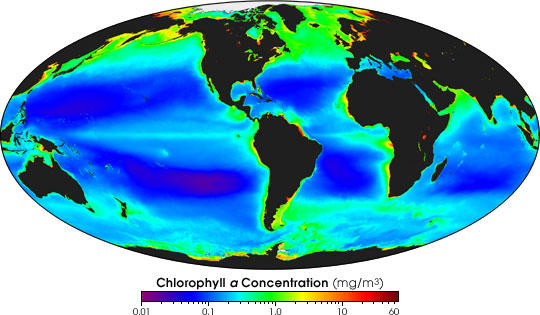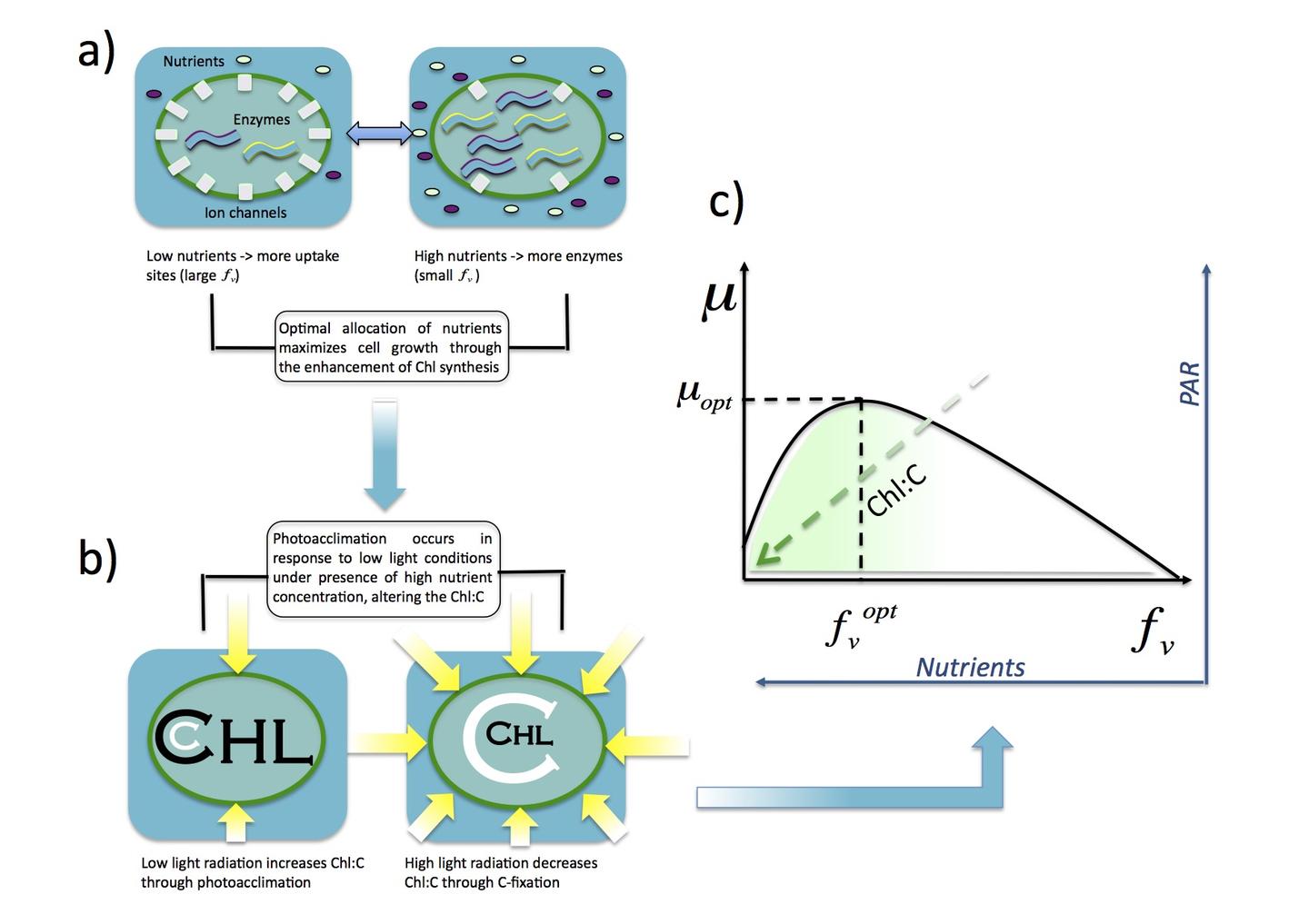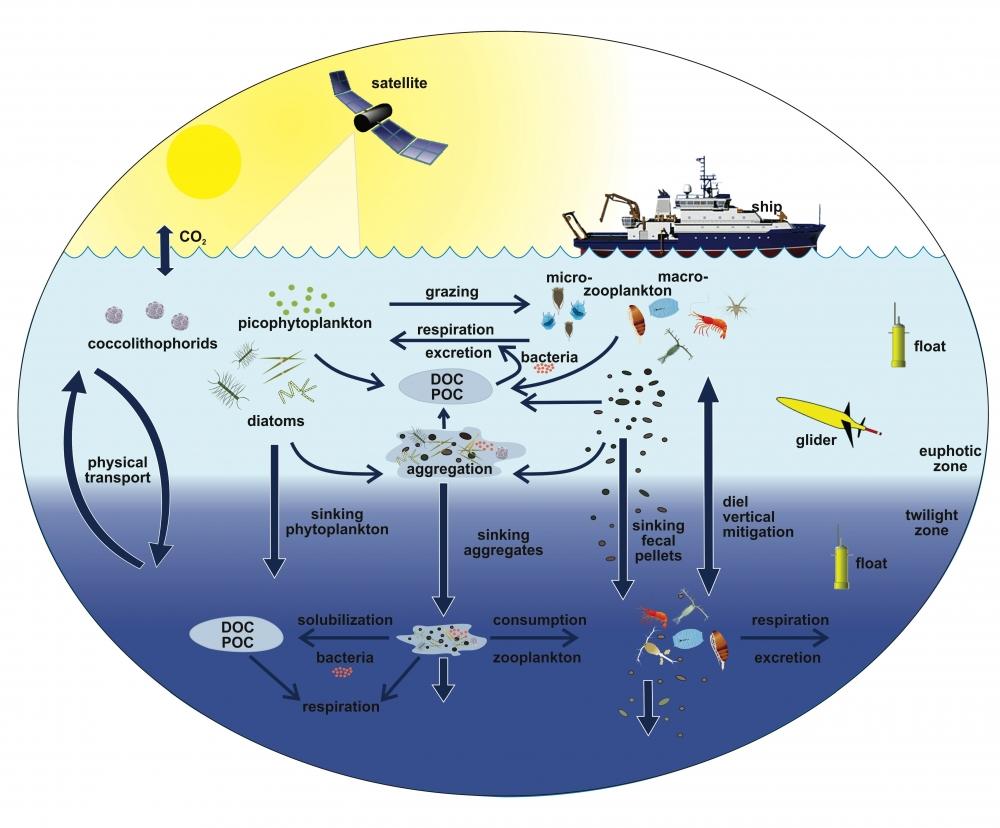Research interests
I am a marine biogeochemist, currently working as a postdoctral research associate in Jorge Samiento's group at Princeton University. The focus of my scientific research is the study of bioglogically driven carbon fluxes in the ocean and their connection with changes in the global climate system. I specialize on the study of biogeochemical cycles through numerical models, autonomous profiling platforms, and satellite observations in order to understand the state of global marine ecosystems and their connection to past and future climate events.
(Image from NASA showing the average chlorophyll concentration in the ocean estimated from SeaWiFS between 1997 and 2004).

Previous work
Most of my previous work was aimed to understand the mechanisms regulating the growth of phyoplankton in the global ocean. My main tool was a physiological model that represents the basic internal biochemical processes driving the aquisition and use of light and energy by marine algae to conduct phosotosynthesis and fix CO2.
(Schematic representation of the optimality-based model of phytoplankton growth from Pahlow, et al, MEPS (2013)).

Current Studies
Presently, my main area of research is the Southern Ocean. I am employing measurements from chemical and bio-optical sensors to assess the efficiency of the ocean “biological carbon pump”. I combine these measurements with information from passive and active satellite sensors in order to quantify biologically driven carbon export from the upper productive marine layer into the deep ocean. This project is part of the SOCCOM program (https://soccom.princeton.edu).
(Image from the NASA project EXPORTS, obtained from http://www.news.ucsb.edu).

Open student projects:
Note: I still welcome supervision of student projects from my NASA/USRA position via collaboration with Princeton postdocs and/or faculty.
Comparison of float bio-optical measurements with a data assimilating model for Southern Ocean
Marine ecosystems influence climate through the regulation of carbon dioxide fixed via photosynthesis and exported to the deep ocean. In this context, the Southern Ocean is a region of major biogeochemical relevance, responsible for about 30 % of the global biological carbon export. The aim of this project is to compare estimates of phytoplankton biomass and particulate organic carbon from autonomous profiling floats deployed by the SOCCOM program (https://soccom.princeton.edu) with outputs from a data assimilating model for estimating the Southern Ocean biogeochemistry. This evaluation involves an assessment of the representation of phytoplankton physiology and ecology in the model. Subsequently, fluxes and seasonality of organic carbon and their effect on oceanic pCO2 will be evaluated within the model framework and compared with novel estimates derived from float data. Basic knowledge of a programming language (preferably Matlab or Python) is required. Familiarity with marine biogeochemistry is desired by not required.
(This project can be extended into a Junior Project or Senior Thesis depending on the availability of the Princeton sponsor. Feel free to contact me for more information)

